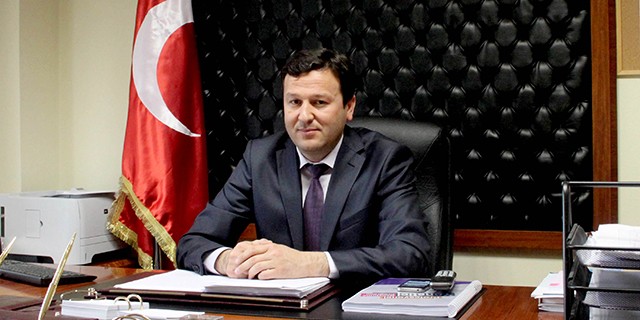TÜBA Associate Member Prof. Dr. Halit Keskin’s Great Achievement
TÜBA Associate Member and Gebze Technical University Business Faculty Teaching Staff Member Prof. Dr. Halit Keskin and Prof. Dr. Ali Ekber Akgün have achieved a great success.
Gebze Technical University Business Faculty Teaching Staff Member Prof. Dr. Halit Keskin and Prof. Dr. Ali Ekber Akgün, who contributed institutional, emotional skill measurement, organizational emotional memory measurement and complex adaptive system measurements to International Literature identified the significance of adaptive transformation capacity for organizations, saw the lack of scientific studies in this field and provided international literature with article titled “Organizational resilience capacity and firm product innovativeness and performance” and the concept of “Adaptive Transformation Capacity in Organizations”. Also they developed, for the first time in the world, a scale to measure adaptive transformation capacity for organizations. The study of Prof. Keskin and Akgün was published in the April 2014 edition of the “International Journal of Product Research”, a reputable journal in the field of technology and innovation management. Ali Ekber Akgün and Halit Keskin defined the components of adaptive transformation capacity of organizations and explained their impact on process innovation.
The study was conducted on companies which had overcome the crisis of 2009 successfully. In the study by Ali Ekber Akgün and Halit Keskin, which contributed directly to international literature, the functional definition of an organization’s adaptive transformation capacity is developed first. For the first time in literature the components of an organization’s adaptive transformation capacity are examined in ten dimensions specified as product development and conceptual trends, the ability of constructive interpretation, learned strength, extraordinary agility, practical habits, behavioral preparedness, psychological reliance, deep social capital, responsibility, the distribution of power and wide source networks.
The results of Prof. Dr. Halit Keskin and Prof. Dr. Ali Ekber Akgün’s study
Factors such as having a strong vision, basic values and corporate objectives and being sensitive; being able to interpret incidents, jobs or problems within the organization, to identify situations and use a common language to emphasize both understanding and emotions; to focus on a disciplined (in line with a specific plan) creativity to find unique and solid answers to unique challenges; responding to changes in the market in a timely manner and adapting in an unexpected way; understanding the existing system well and acting instinctively to form correct answers; being prepared ahead of time to be able to utilize situations that occur (opportunity and/or threat) before it becomes necessary and then acting; creating work environments that are perceived to be suitable to take on risks among the individuals; learning behavior based on new perspectives and information, forming organizational structures that have been designed to change, supporting adaptive (adjustable) initiatives and using relations with suppliers and strategic allies (collaborators) to secure necessary sources show the existence of a strong, adaptive transformation capacity.
Also an adaptive transformation capacity increases the competitive edge of a company by affecting product innovation more in sectors with high turbulence.

